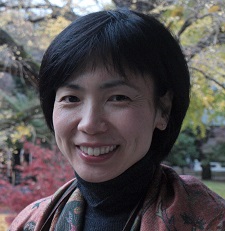
Maki Umeda
Professor
University of Hyogo Reserch Institute of Nursing Care for People and Community
Maki Umeda is a social epidemiologist specialized in mental health. After she graduated from St. Luke’s College of Nursing in Japan in 2000, she worked as a public health nurse at the Tokyo Metropolitan government. Her occupational experience motivated her into community mental health and social determinants of health. Because of her strong interest in sociocultural influence on health, she was enrolled in First Nations’ study program in Canada, and obtained her first Master’s degree from University of Northern British Columbia in 2006. Her second Master’s in Public Health from the University of Tokyo helped her combine her health background and sociocultural interests. She completed her PhD in health science at the University of Tokyo Graduate School of Medicine in 2013 and awarded a Balzan Fellowship from University College of London in 2014. For the latest 10 years, she has been working with multidisciplinary research teams internationally and domestically, and published numerous scientific papers in the area of psychiatric epidemiology, social epidemiology, and disaster medicine & nursing. In disaster research, she has been a part of research team that investigates the mental health of community residents after the Fukushima Daiichi Nuclear Power Plant Accident. She also initiates a study on the health needs of international residents during disasters and the use of information technology to support them. Currently, she is involved in research projects on psychosocial support for health workers during the COVID-19 pandemic. She is a faculty of the Disaster Nursing Global Leader Degree Program at University of Hyogo and serves as a researcher for the WHO Collaborating Center for Disaster Risk Management for Health Maki Umeda is a social epidemiologist specialized in mental health. After she graduated from St. Luke’s College of Nursing in Japan in 2000, she worked as a public health nurse at the Tokyo Metropolitan government. Her occupational experience motivated her into community mental health and social determinants of health. Because of her strong interest in sociocultural influence on health, she was enrolled in First Nations’ study program in Canada, and obtained her first Master’s degree from University of Northern British Columbia in 2006. Her second Master’s in Public Health from the University of Tokyo helped her combine her health background and sociocultural interests. She completed her PhD in health science at the University of Tokyo Graduate School of Medicine in 2013 and awarded a Balzan Fellowship from University College of London in 2014. For the latest 10 years, she has been working with multidisciplinary research teams internationally and domestically, and published numerous scientific papers in the area of psychiatric epidemiology, social epidemiology, and disaster medicine & nursing. In disaster research, she has been a part of research team that investigates the mental health of community residents after the Fukushima Daiichi Nuclear Power Plant Accident. She also initiates a study on the health needs of international residents during disasters and the use of information technology to support them. Currently, she is involved in research projects on psychosocial support for health workers during the COVID-19 pandemic. She is a faculty of the Disaster Nursing Global Leader Degree Program at University of Hyogo and serves as a researcher for the WHO Collaborating Center for Disaster Risk Management for Health

